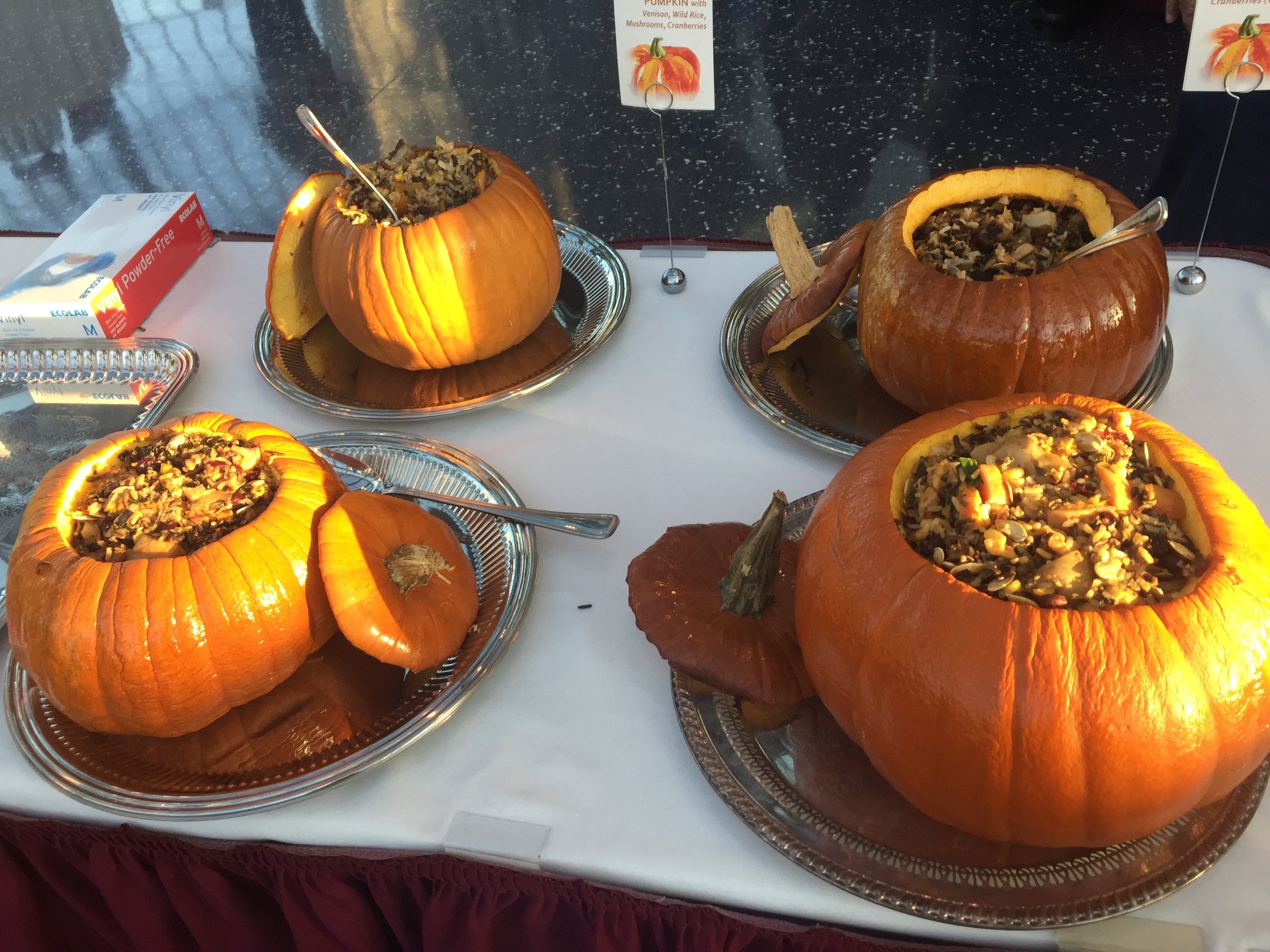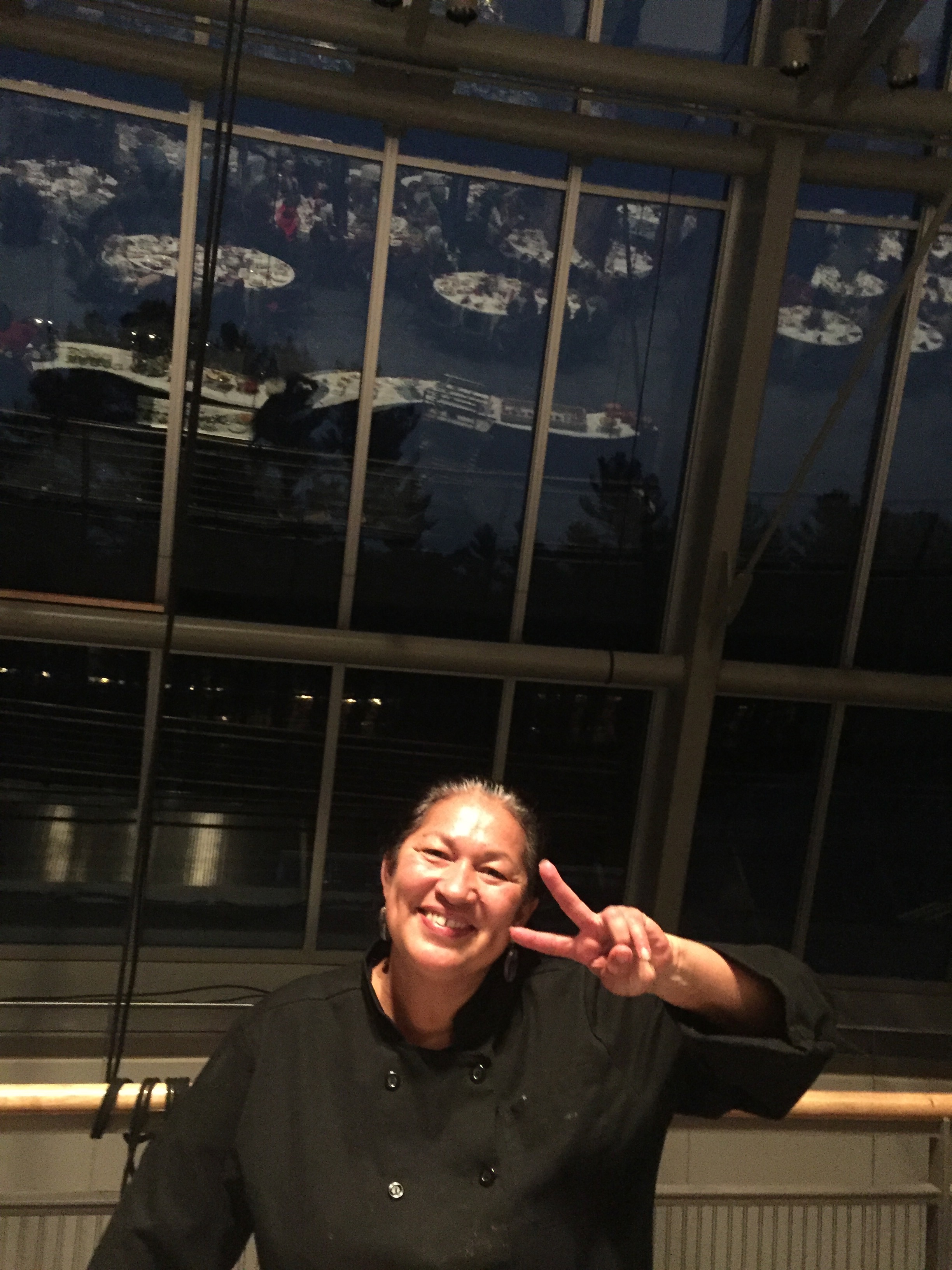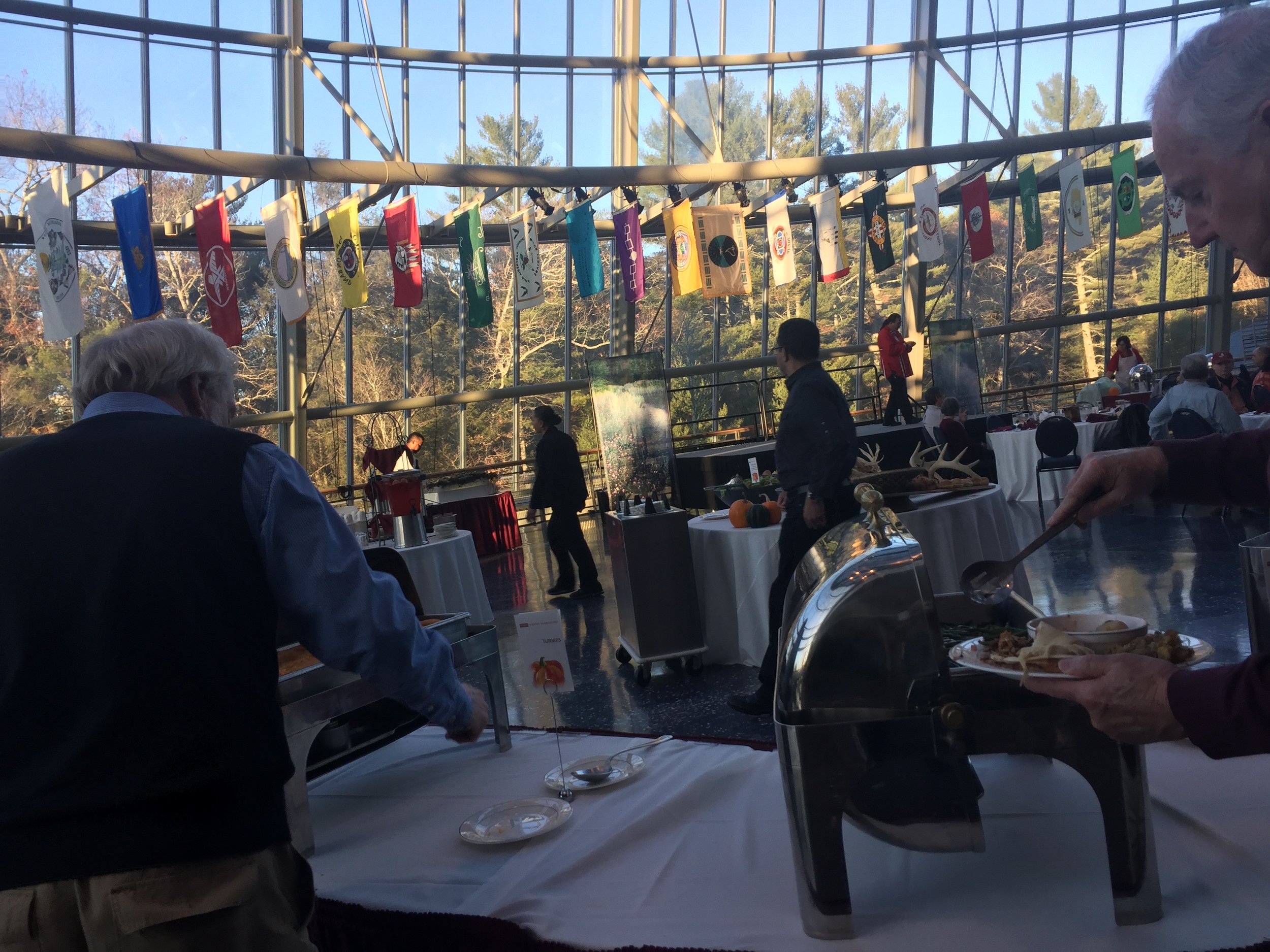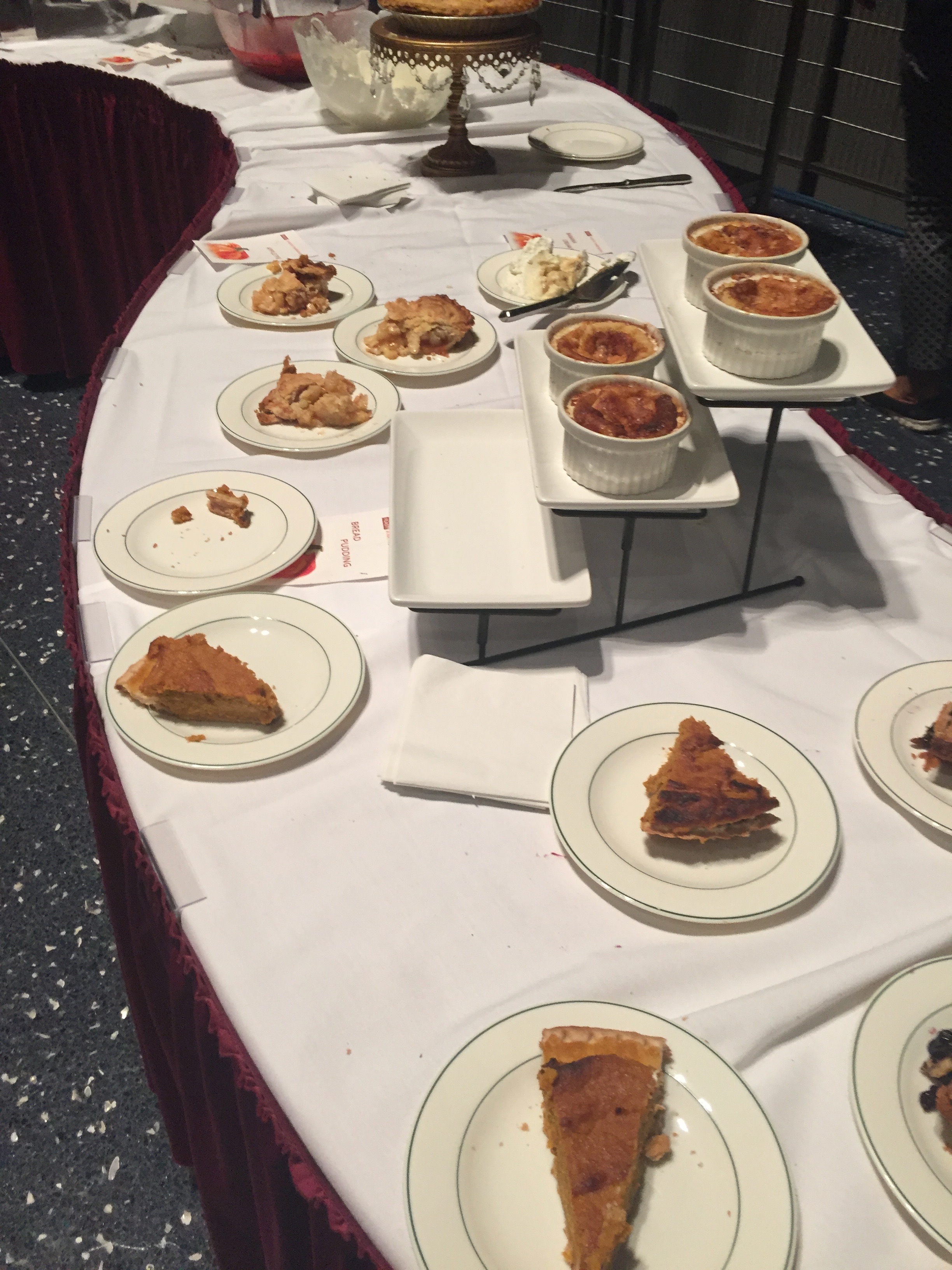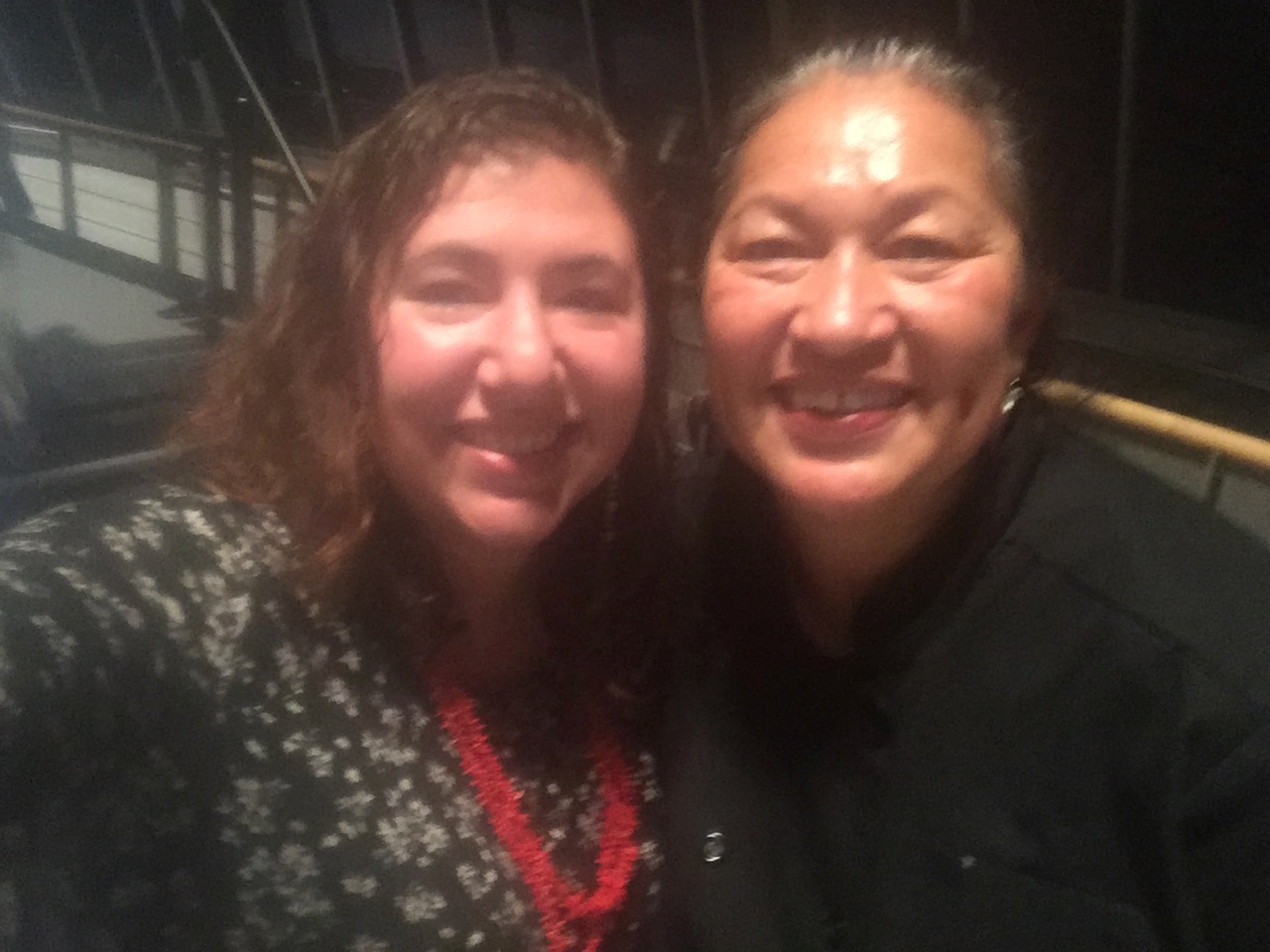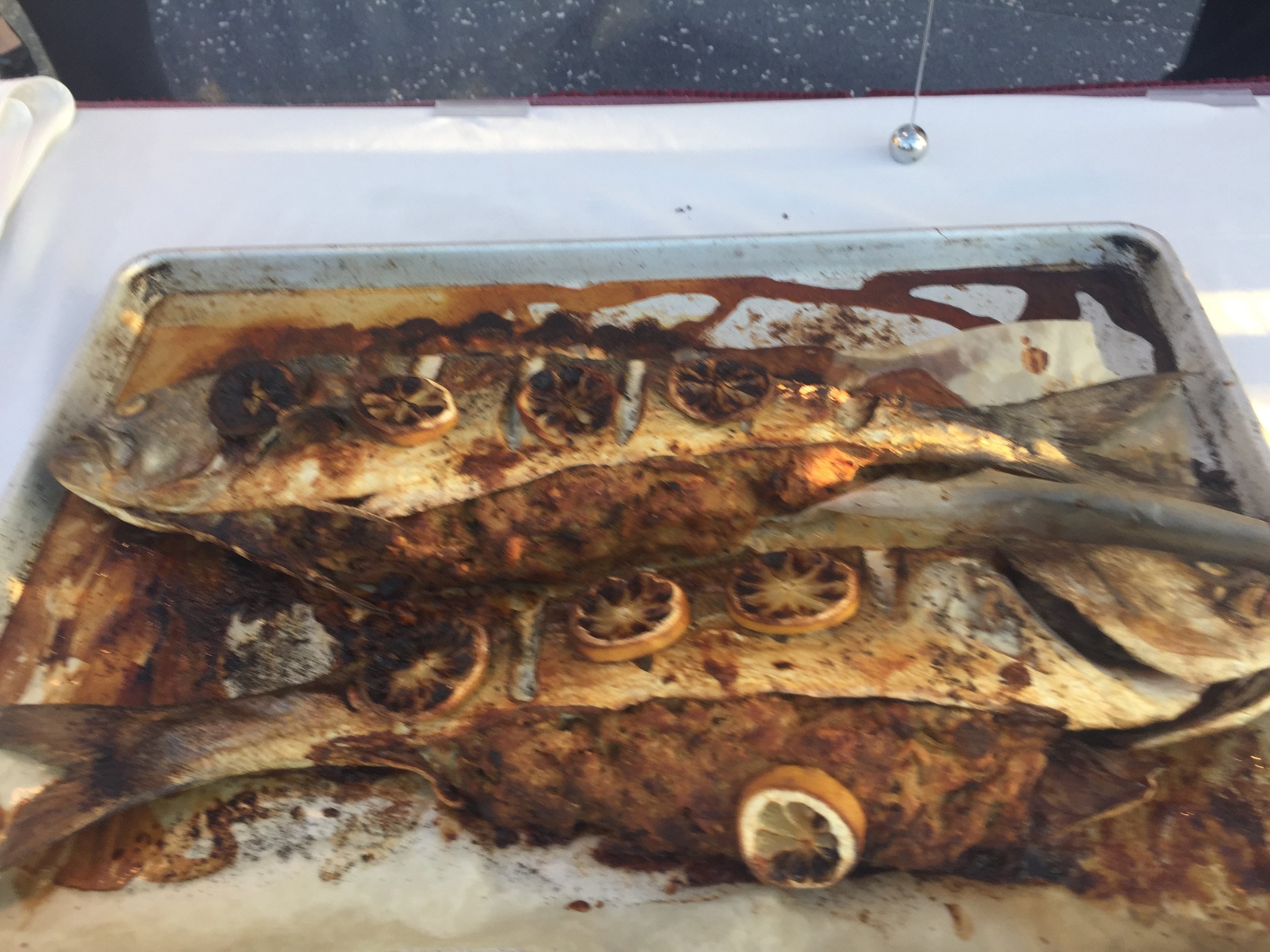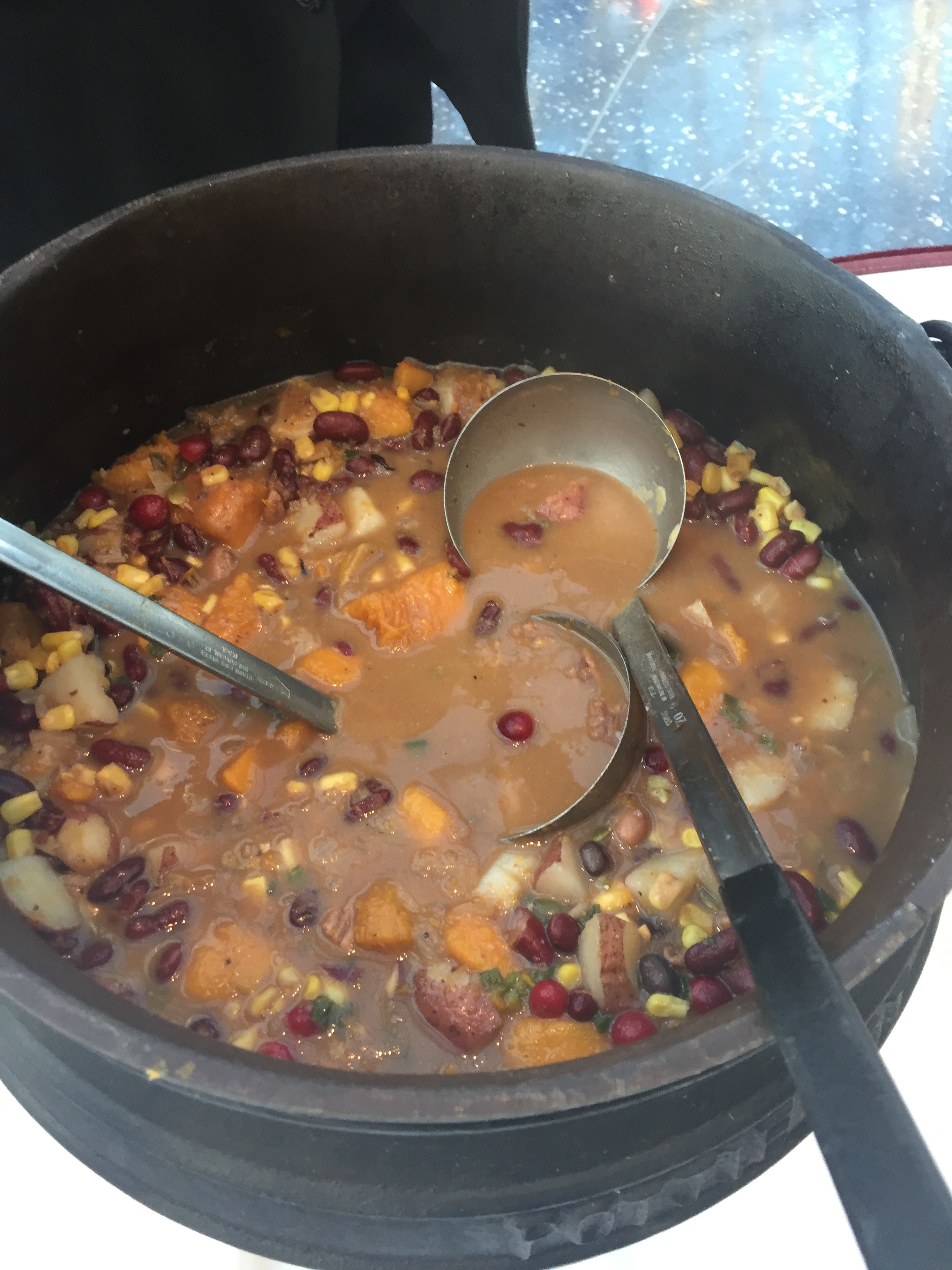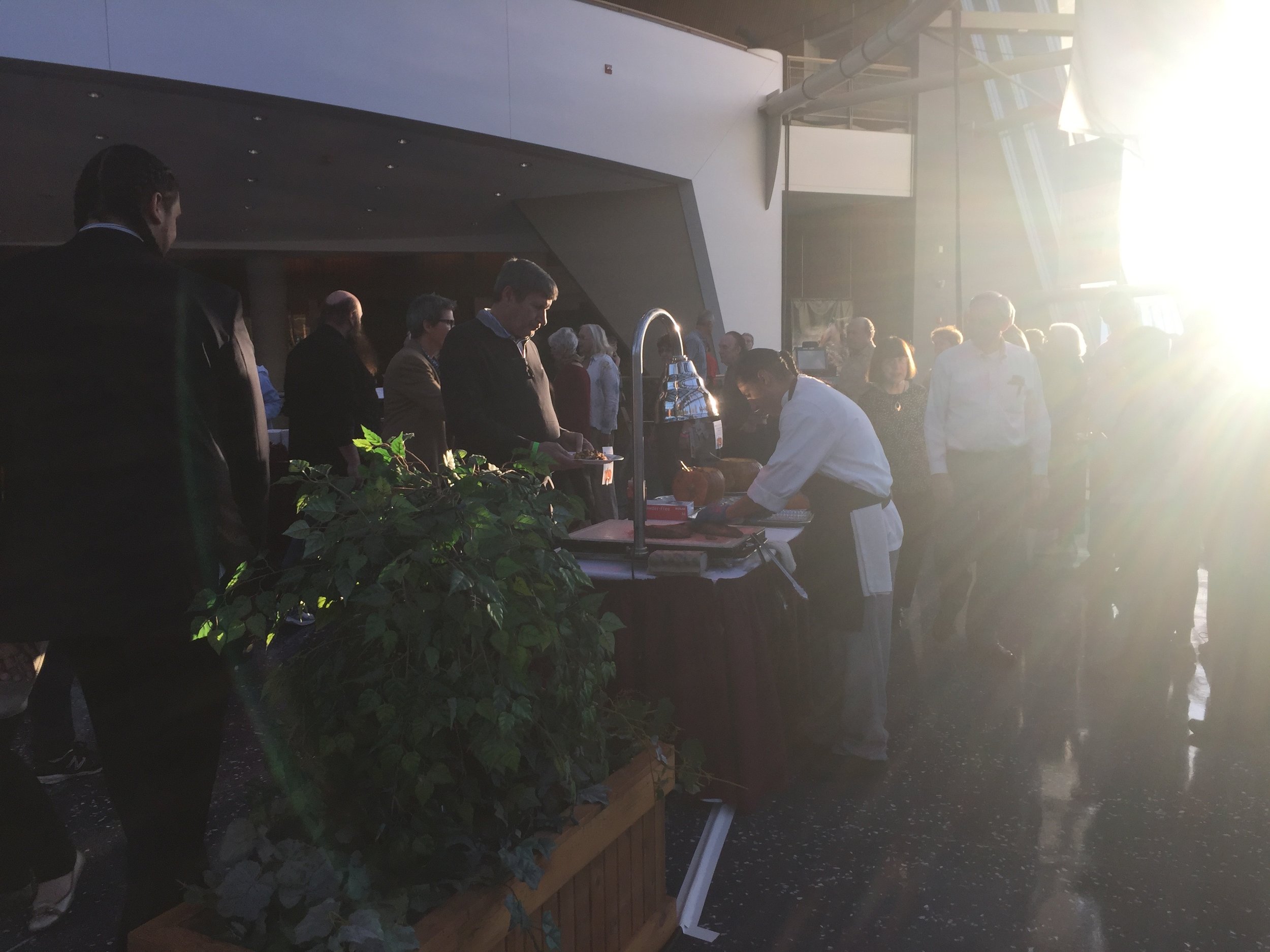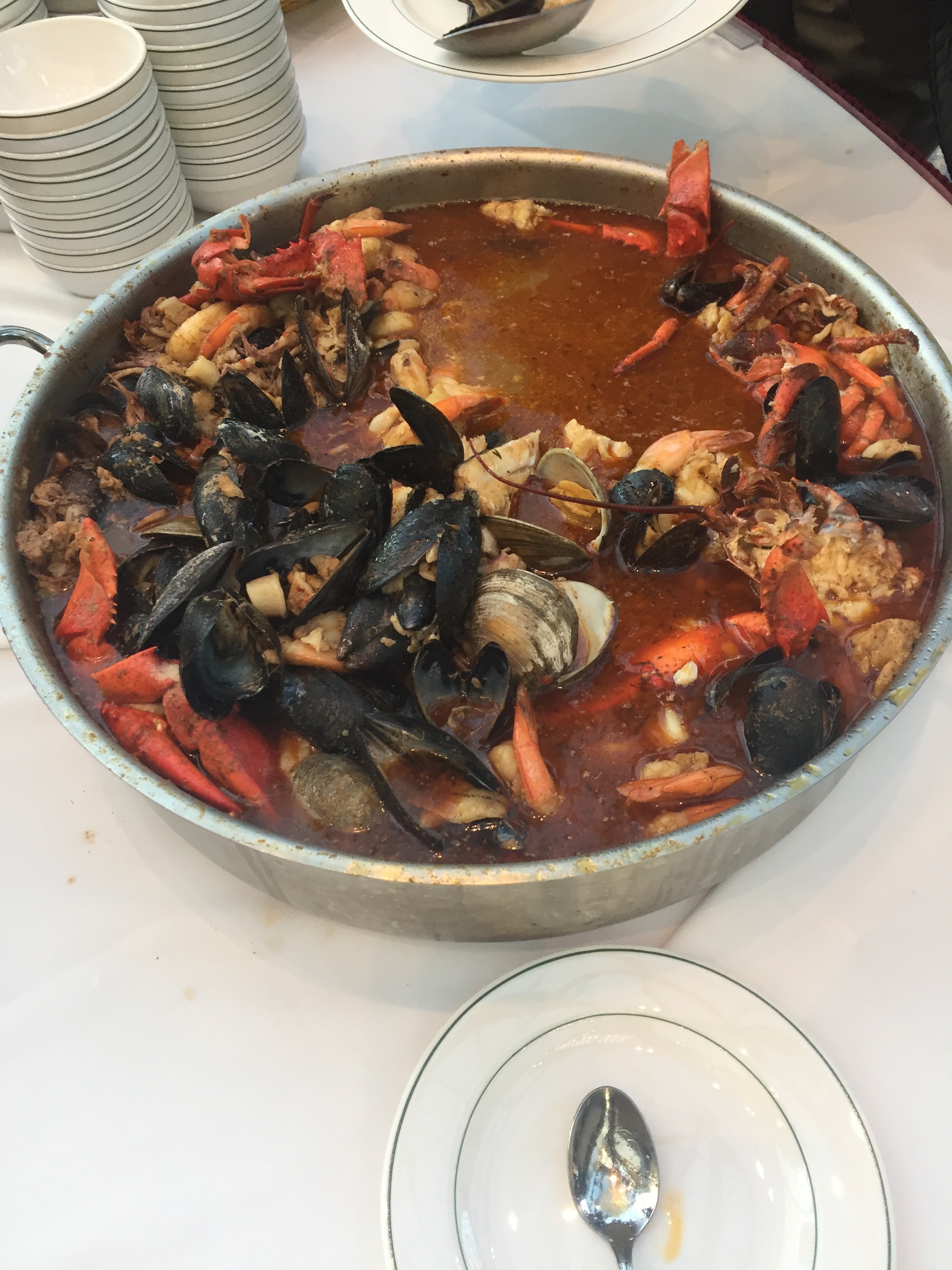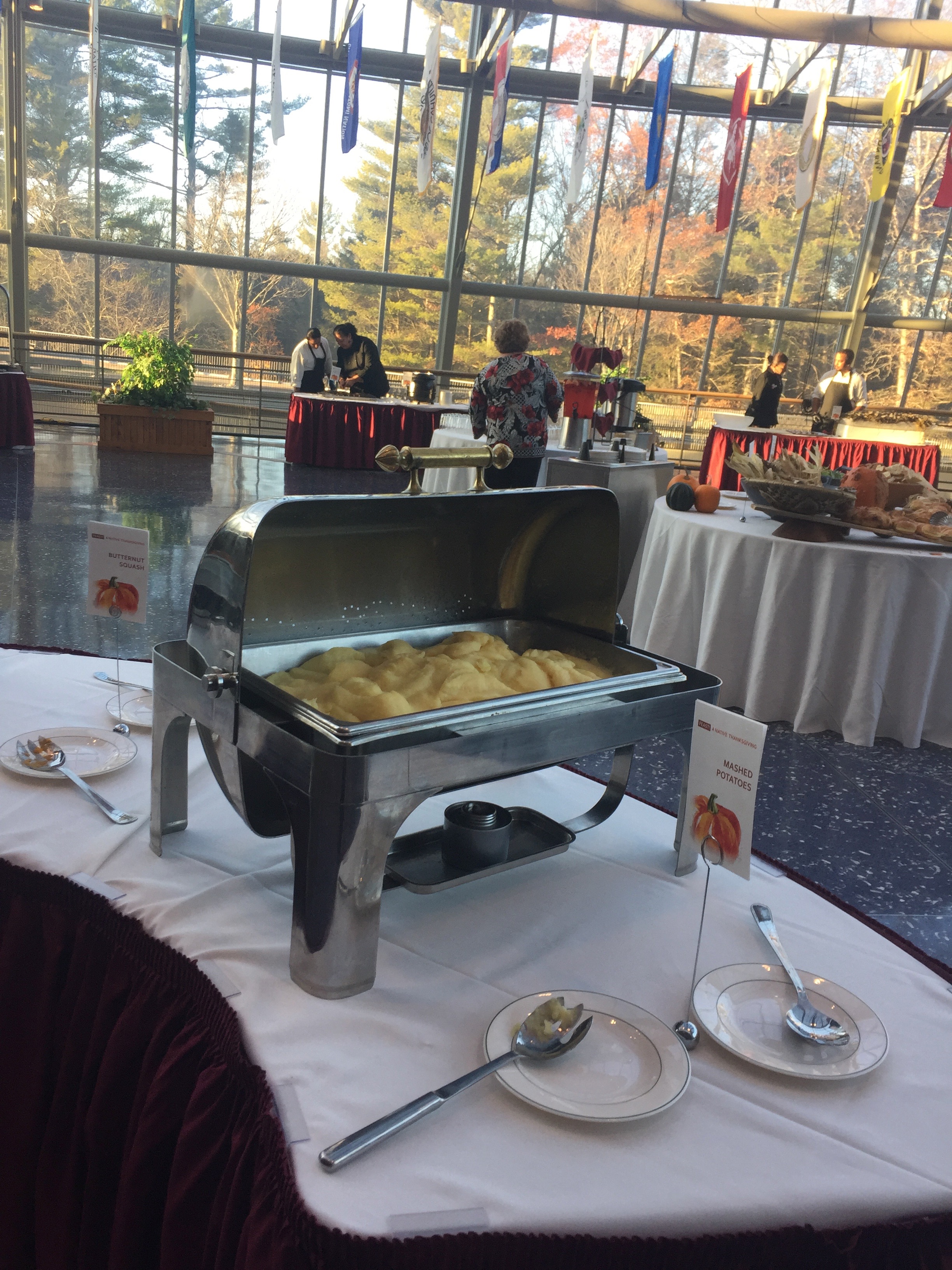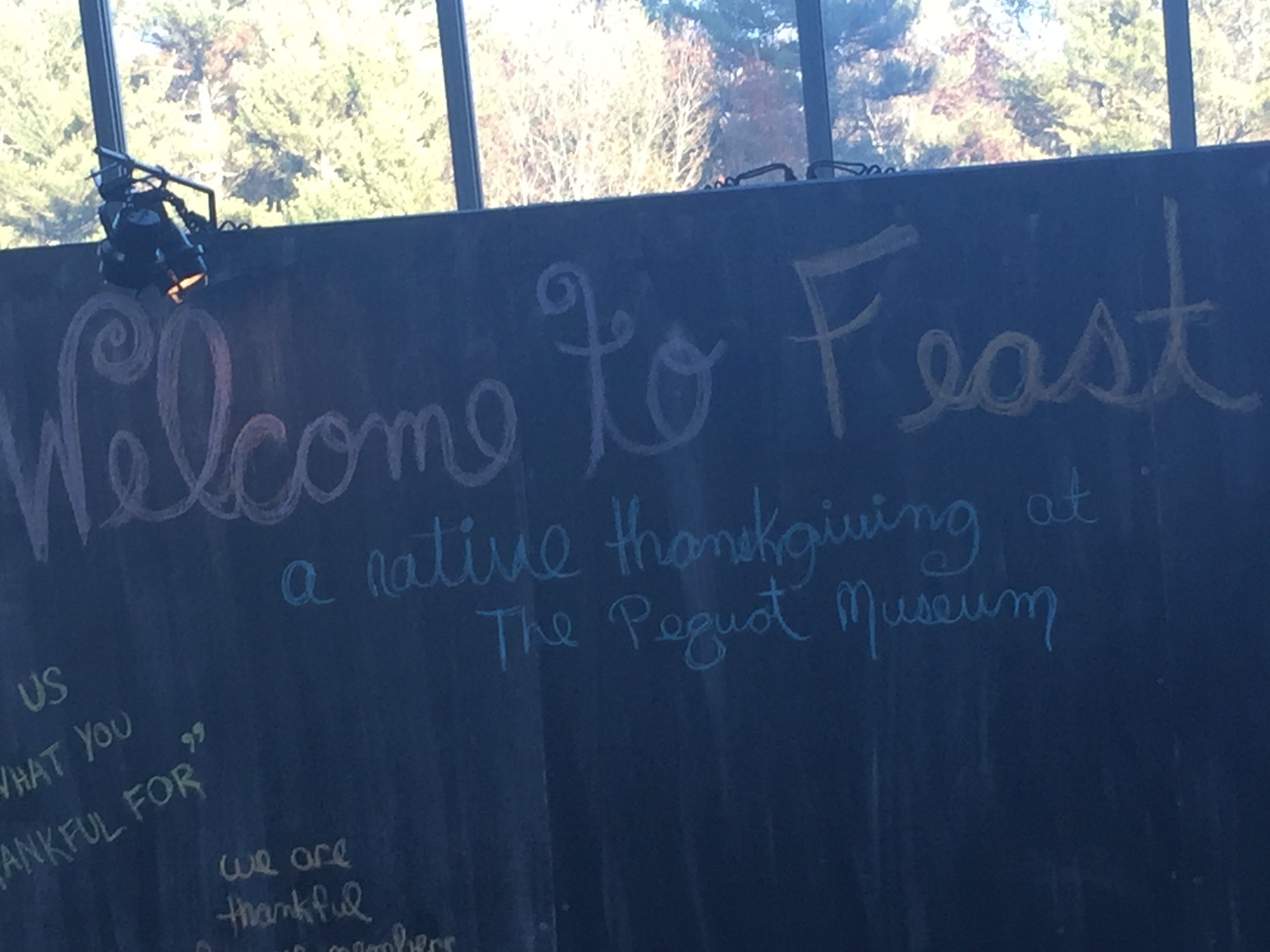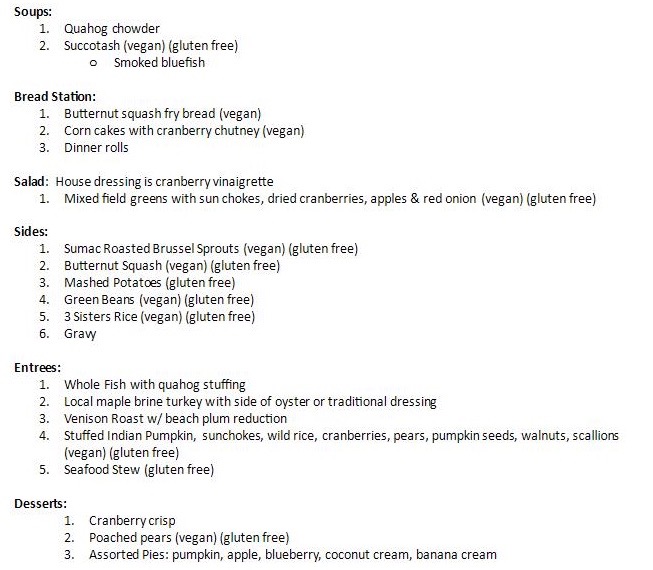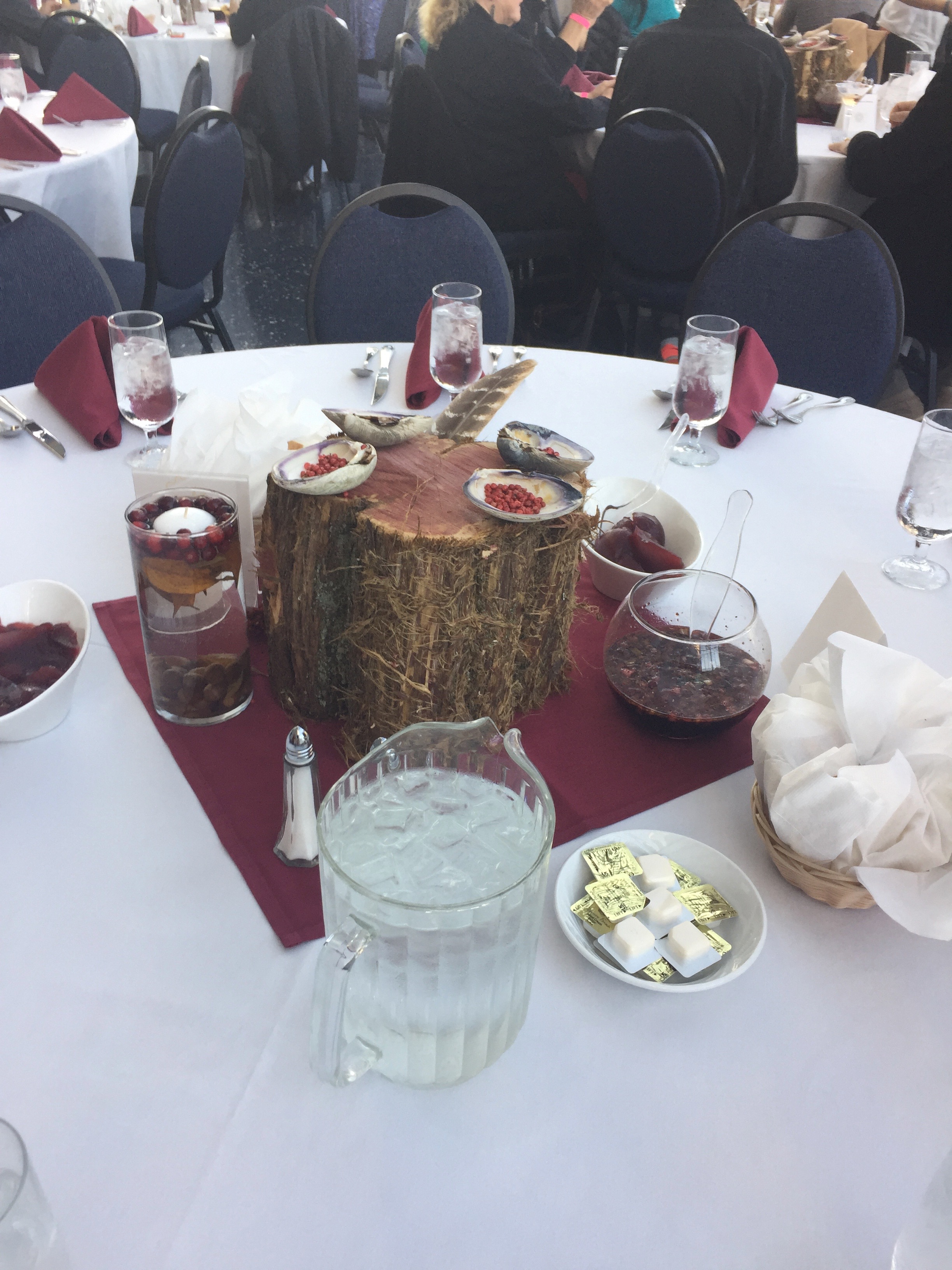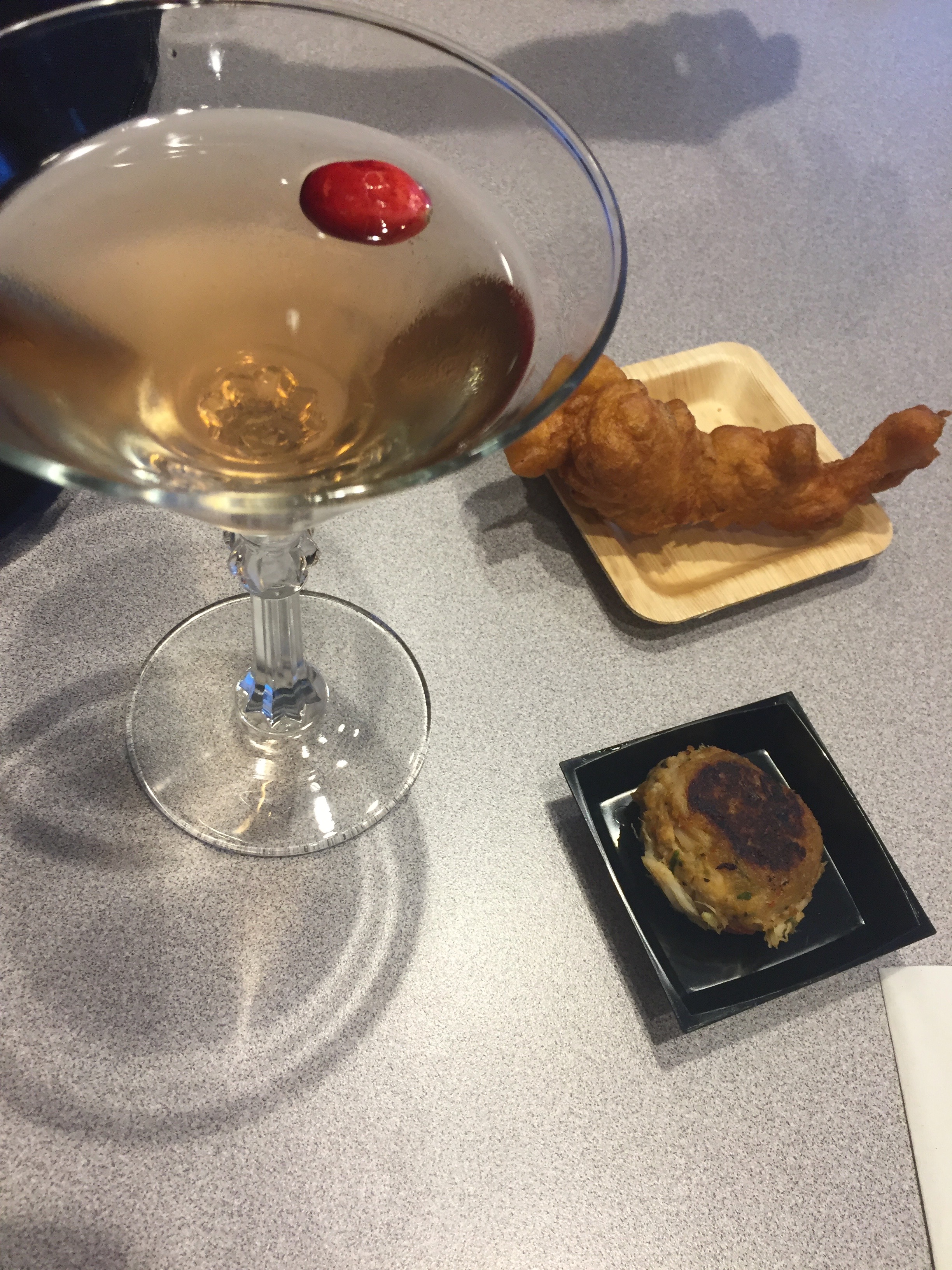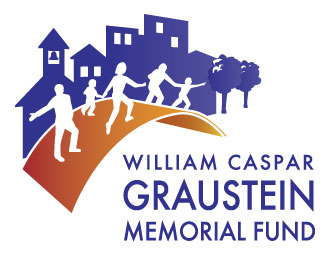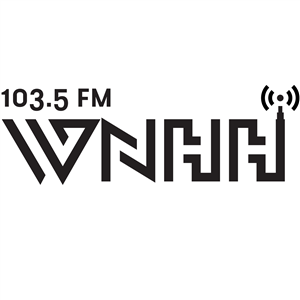The True History & Foods of Thanksgiving
"Thanksgivings were celebrated for murder and slavery, rather than friendship and harvest." - Jay Levy
From left: Wampanoag Chef Sherry Pocknett, Mohegan Anthropologist Rachel Sayet and Jay Levy who is of indigenous Columbian heritage and works for the Mohegan Tribe. For this episode, these three educators speak to the true history of Thanksgiving, the intrinsic element of giving thanks in native cultures, indigenous foods and how handle the Thanksgiving holiday each year.
Every year November rolls around and the idea of giving thanks and feasting like the Pilgrims and Indians are storied to once have done, spreads across our country like a wave of pumpkin spice flavoring. Much like the artificial nature of pumpkin spice lattes, the story most Americans know of Thanksgiving is false, but the impacts of this untrue history are much more damaging than pumpkin flavored snack foods.
The historical meal the Thanksgiving holiday is based on was a colonial celebration of a successful harvest and possibly a treaty negotiation in 1621. At that point in history, colonists from England had been living in what we now call Massachusetts and struggling to survive. The indigenous peoples living in this area were primarily Wampanoag. Consistent with their culture, they welcomed the foreigners arriving on the land, and tried to help them survive, grow food, and treated illnesses. Over time, this generosity was taken advantage of, and consistent with the culture of the British colonizers, they claimed stake to land and crops and murdered indigenous peoples to serve their own wants.
Many Americans no longer celebrate the myth of the Pilgrims and Indians around their dinner tables, but rather savor it as a time to give thanks for the small or large things in life they feel fortunate to have. Unfortunately many still don't know the real truth about this holiday story which is so fundamental to the founding of our country. Our children still come home from school knowing the names of the Nina the Pinta and the Santa Maria, the ships the "brave explorer” Columbus sailed when he "discovered America", sailing the ocean blue in 1492, and they think the Pilgrims and Indians feasted in harmony during the fall harvest season 400 years ago. As with most of the real history of many countries around the world, the accurate reality of the relationship between indigenous peoples and colonizers is far more complex, and gruesome.
For this Episode of The Table Underground, we welcomed three indigenous people: Wampanoag Chef Sherry Pocknett, Mohegan Anthropologist Rachel Sayet and Jay Levy who is of indigenous Columbian heritage and works for the Mohegan Tribe. They each speak to the true history of Thanksgiving as well as native foods of the north-east region and how they were prepared historically as well as in modern times. They speak from their hearts about how intrinsic the act of giving thanks is to indigenous peoples across the continent and how it differs greatly from the historical European notion of thanksgiving. Each guest also shares about how this annual holiday impacts them personally and how they mark this last Thursday of November each year.
For Jay Levy, his focus is "educate don't hate" and Thanksgiving is "just a Thursday". He marks it as a day of mourning, often attending the official day of mourning and remembrance in Plymouth, MA. Everyone is welcome at this event, but only native peoples are invited to speak.
Chef Sherry Pocknett finds her joy in cooking all year round. She draws on a lifetime of food knowledge deeply instilled in her from her parents and elders. She shares some great stories about how her parents taught her to forage and fish in this interview. Sherry cooks through her catering company Sly Fox Den. She was also the Chef at the Mashantucket Pequot Museum and still prepares their impressive fall harvest feast each year based on north-eastern native foods and traditions. This year's feast is sold out, but check back for next year! Below are some pictures from last year's feast taken by Rachel Sayet.
Rachel Sayet whose maternal lineage are the medicine women and historians of the Mohegan Tribe, and whose grandfather is a descendant of colonizers who arrived on the Mayflower, welcomes the full complexity of this holiday around her family table each year! This November 24th she will be traveling to New York City to join chef Brian Yazzie from The Sioux Chef, Neftalí Duran and Hillel Echo-Hawk to serve up a Thanksgiving Intervention - Indigenous Harvest Pop-Up through the i-collective. Click the link for tickets.
One of the most important things each of these educators spoke about is the many ways that indigenous peoples give thanks throughout the days and seasons. There are seasonal festivals like the Maple Moon or the Strawberry Moon, and smaller more personal ways that people offer thanks before harvesting and eating. You can also check these Thanksgiving Resources and Reflections from Rachel Sayet.
2016 Indigenous Day of Mourning in Plymouth, MA - Photo credit, Jay Levy
2018 Resource Update: Thanksgiving Reflections & Resources from Mohegan Educator Rachel Sayet.
Education Resources
Thanksgiving Initiative of the Archeology Education Clearinghouse
An evolving compilation of resources for parents and teachers about Thanksgiving. The site, being developed by The Society for American Archaeology’s Committee on Native American Relations (including our guest Jay Levy), includes a letter for parents to bring in to school, a study guide from the National Museum of the American Indian, and more. They recommend the National Geographic picture book geared towards 3-5th graders, 1621, A New Look at Thanksgiving.
Paper Cut picture by Julia Fet
Indigenous Reads for Children
This list of 14 recommended children’s books by Indigenous writers and illustrators was curated by The Conscious Kid Library and American Indians in Children’s Literature, in partnership with Brooklyn Children’s Museum.
Education World
A this helpful article for educators or parents. It includes teaching suggestions, and links to readings, resources and activities for teachers and students.
Rachel Sayet, presenting on native foodways and traditions.
Modern Indigenous Cuisine in New England - by Rachel Sayet
An extensive article spanning the history, traditions and foodways of North-eastern indigenous peoples.
At the end of this episode, Rachel reads from The Haudonosaunee (Iroquois) Prayer: Thanksgiving Address, Greetings to the Natural World. Read the full address HERE. Purchase a copy Here.
There is so much more we could share, and we will keep sharing! The information and resources to revitalize indigenous culture, language and food are exploding these days. Please post questions or resources you know of below!
This episode was made possible through an Inspiring Equity in Education fellowship from the William Casper Graustein Memorial Fund. I will be producing more pieces on equity in education in the coming months, many of which will focus on traditional schools, but some, like this piece will address education in a broader context.
Ep. 26 — The Table Underground — Nov 17, 2017


